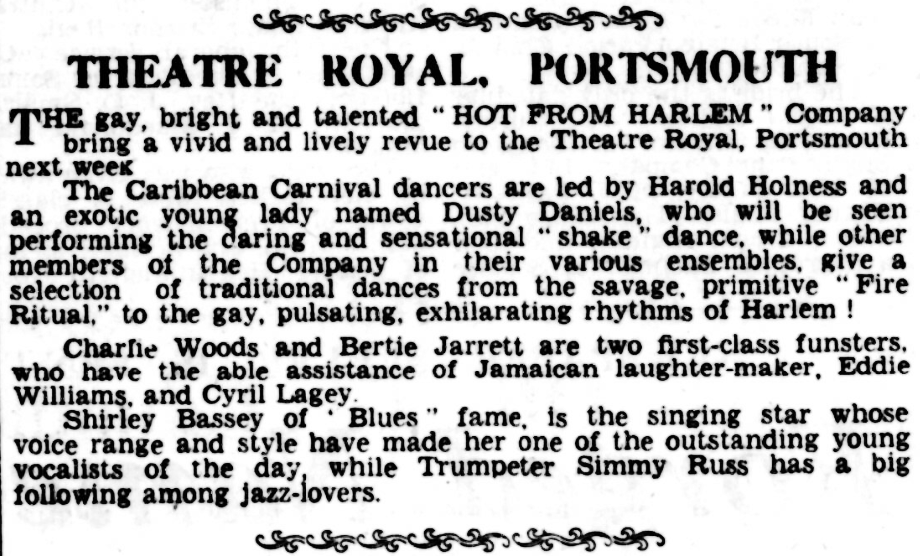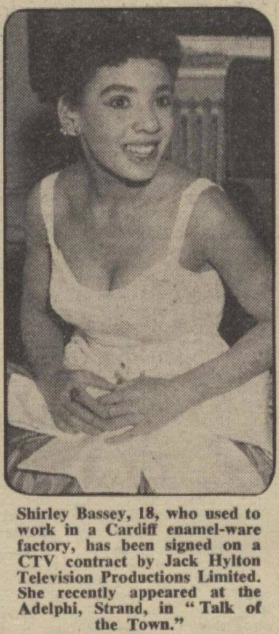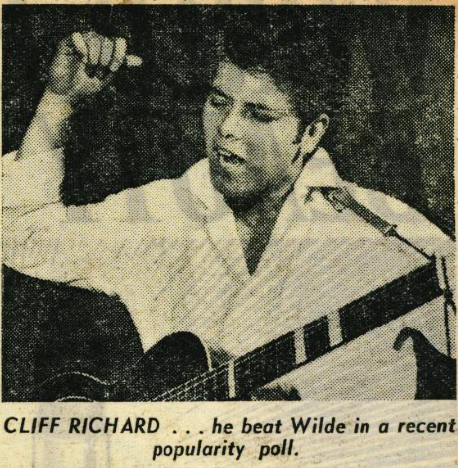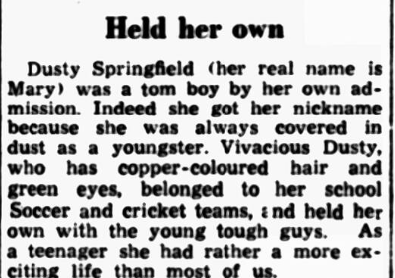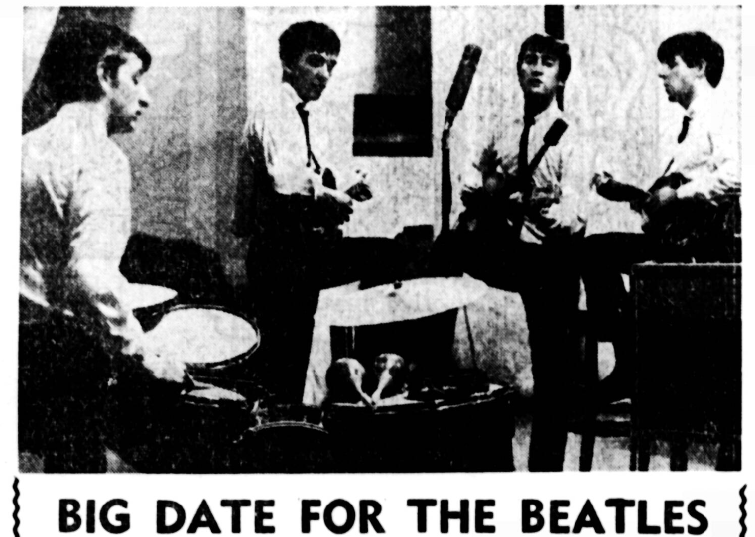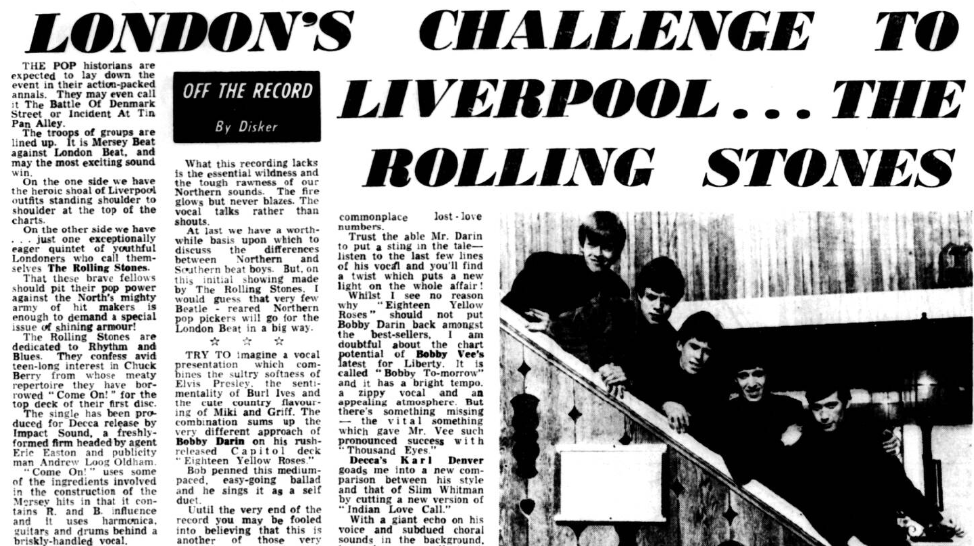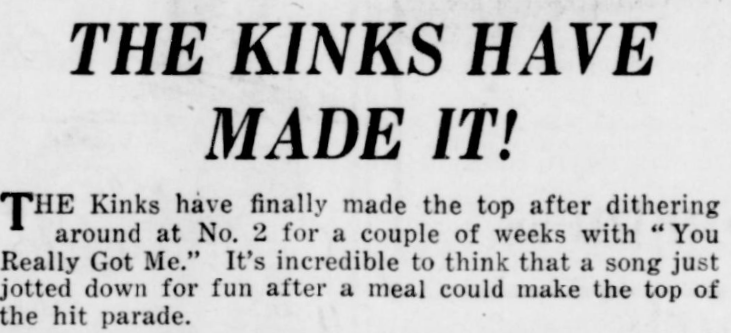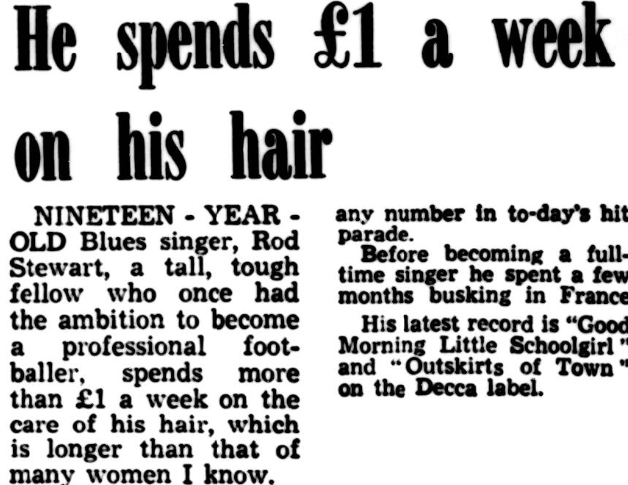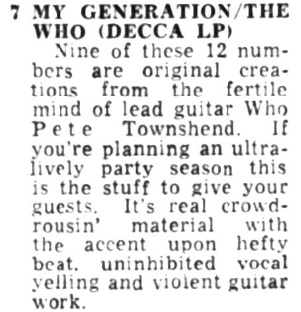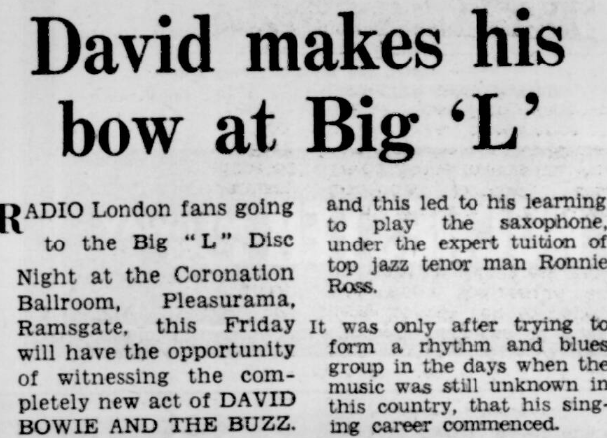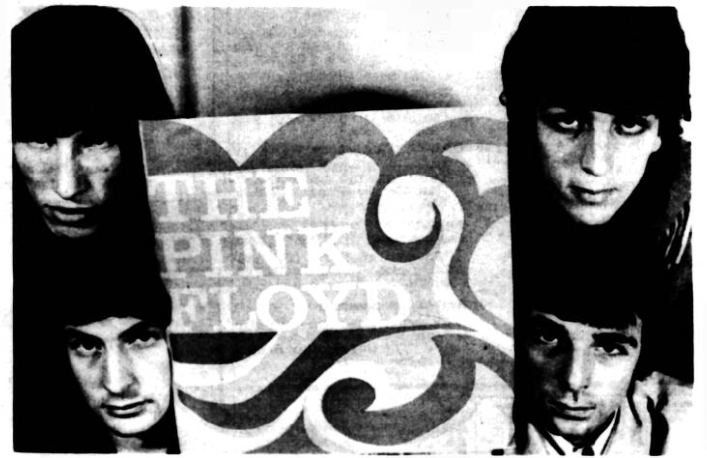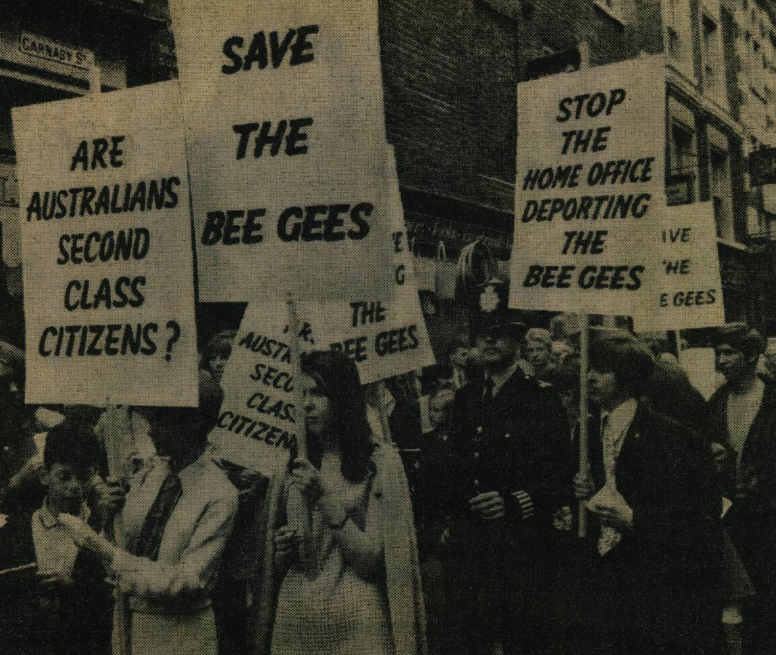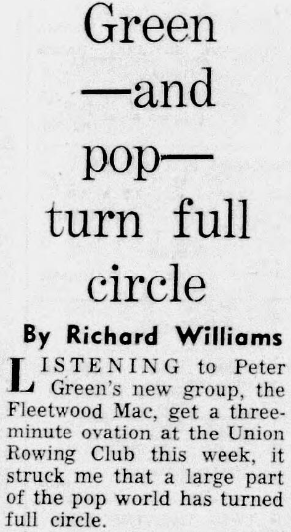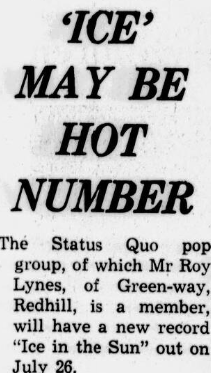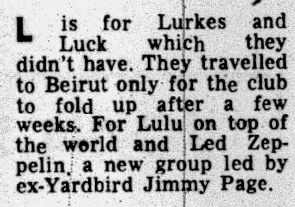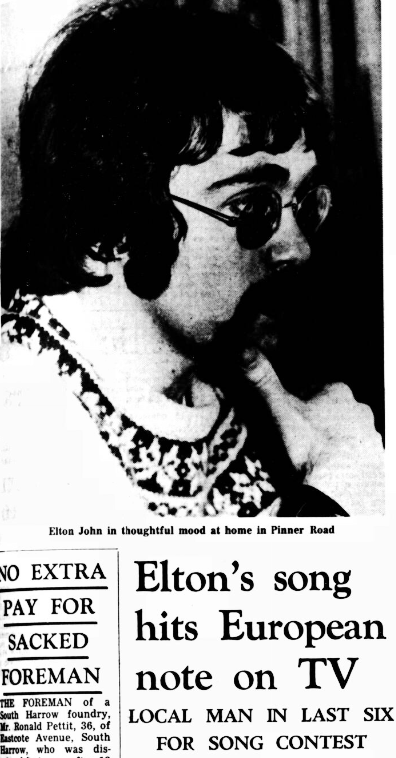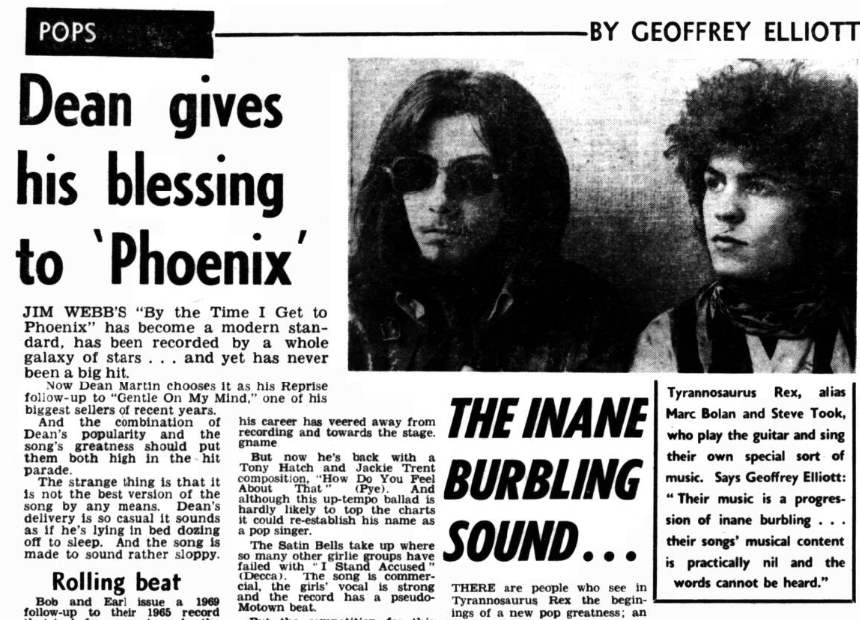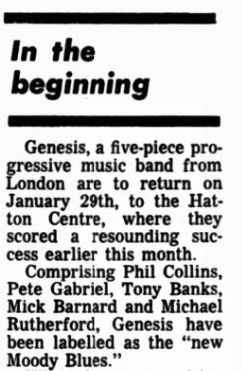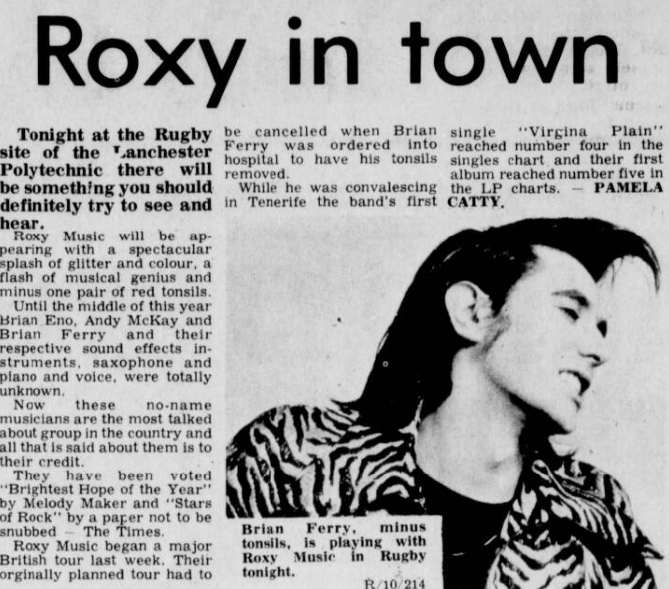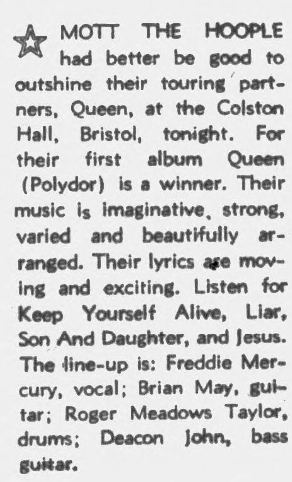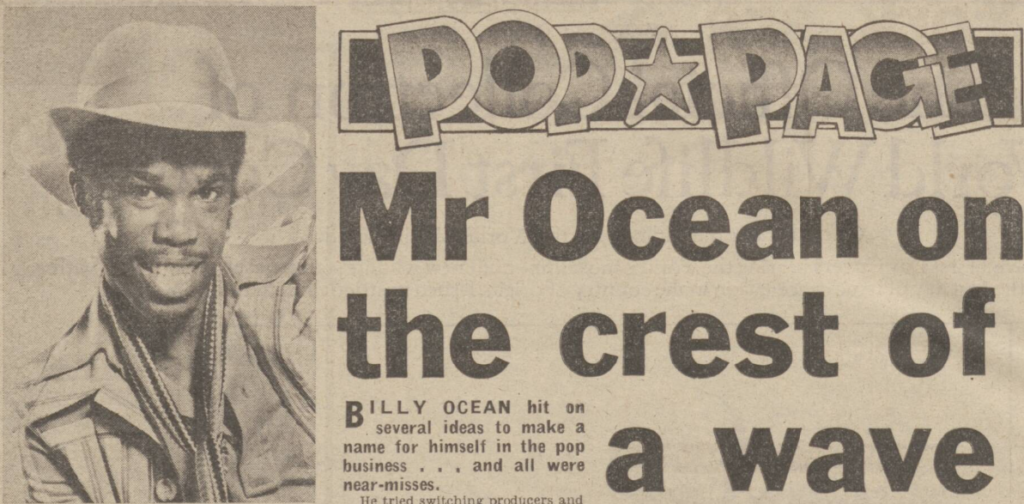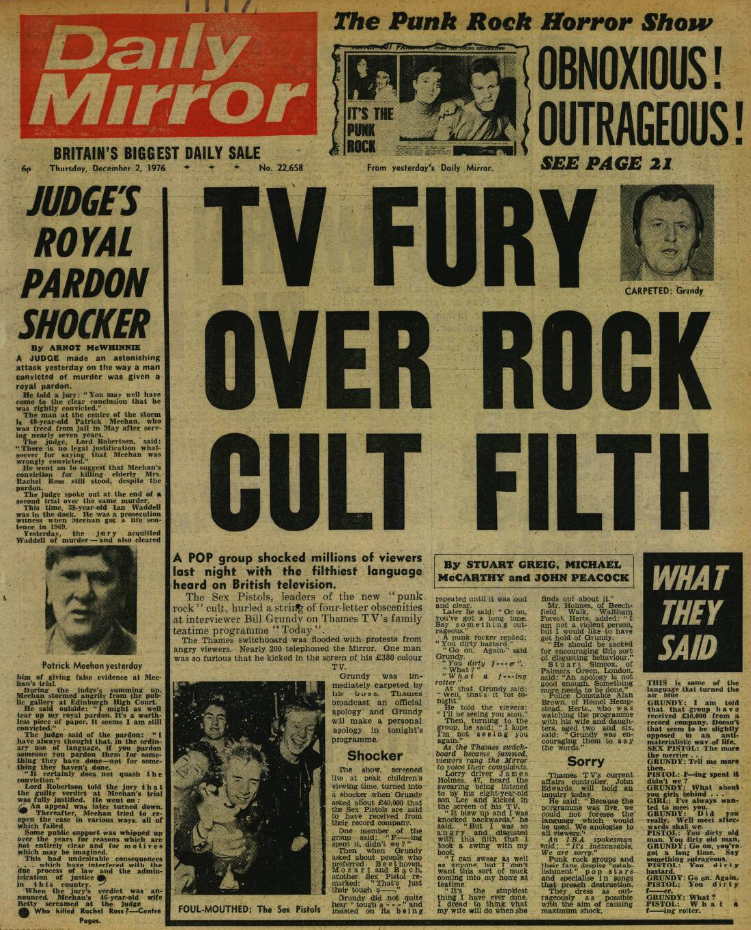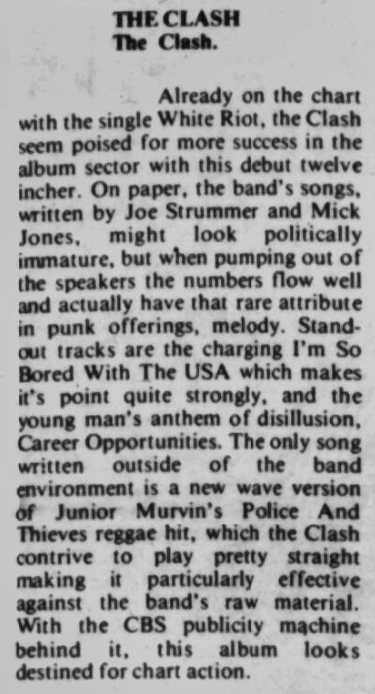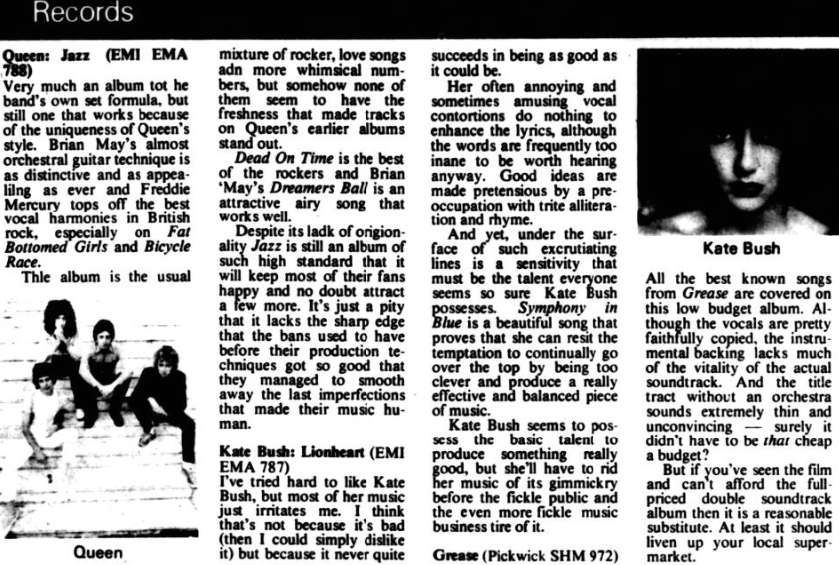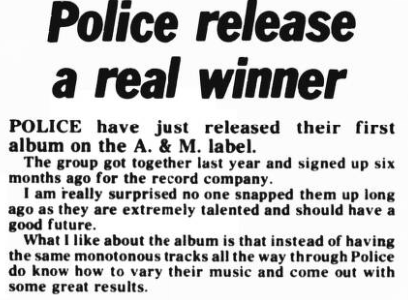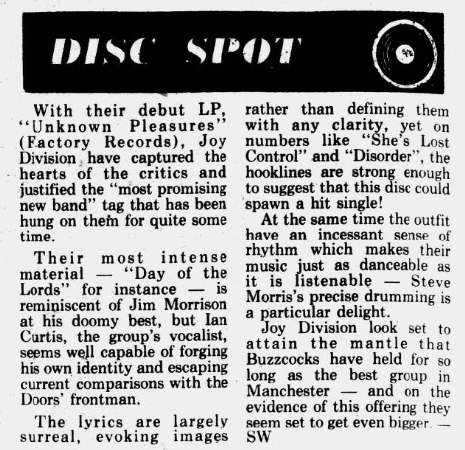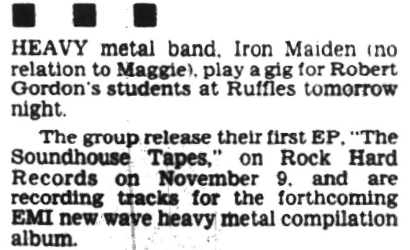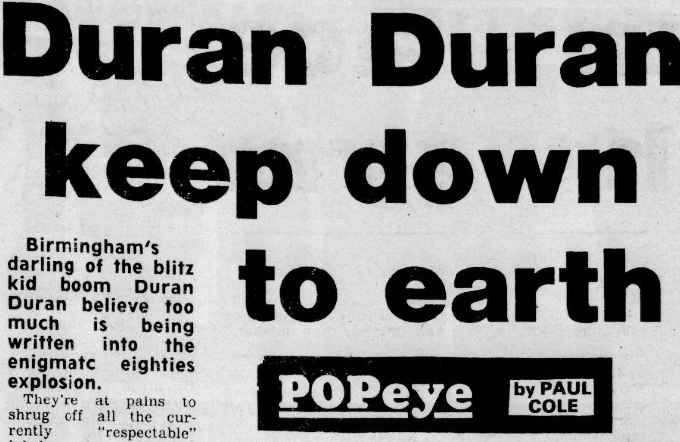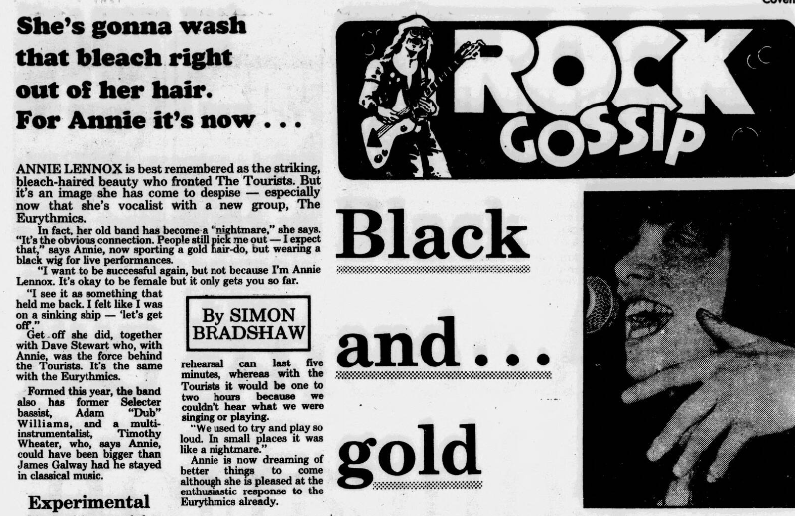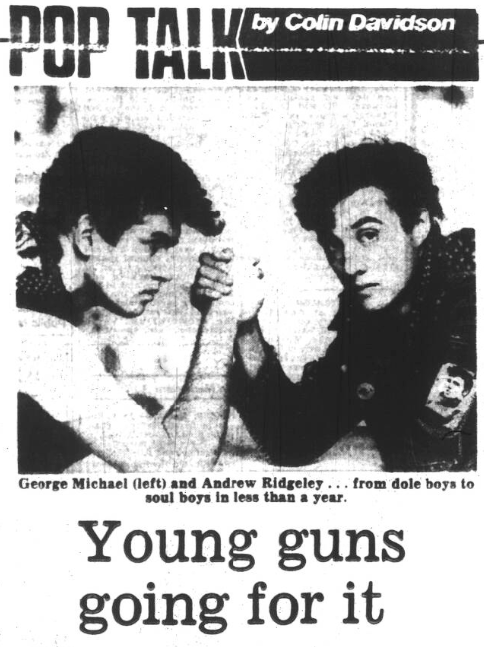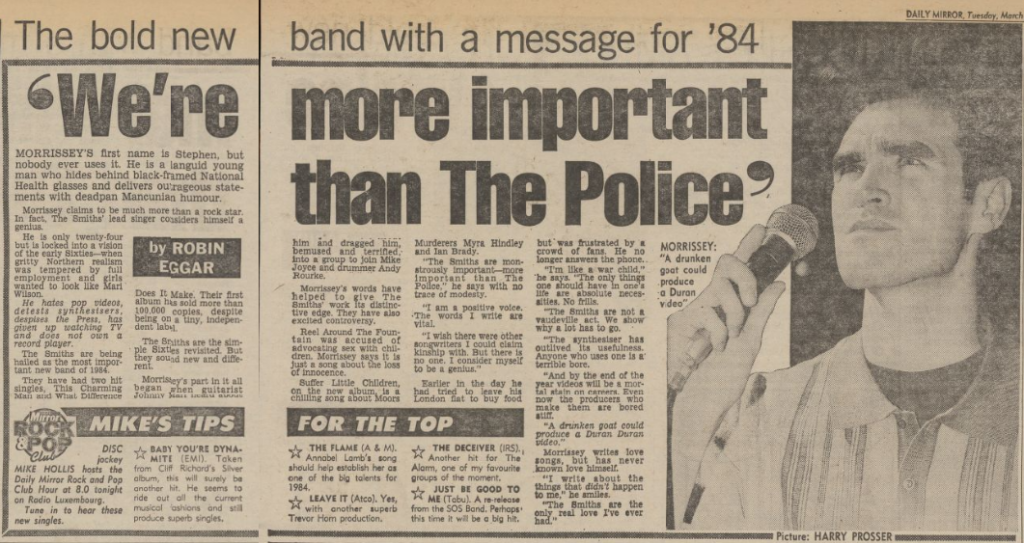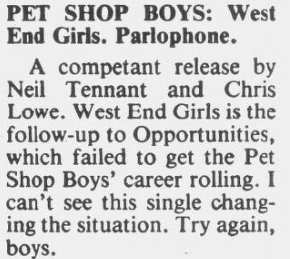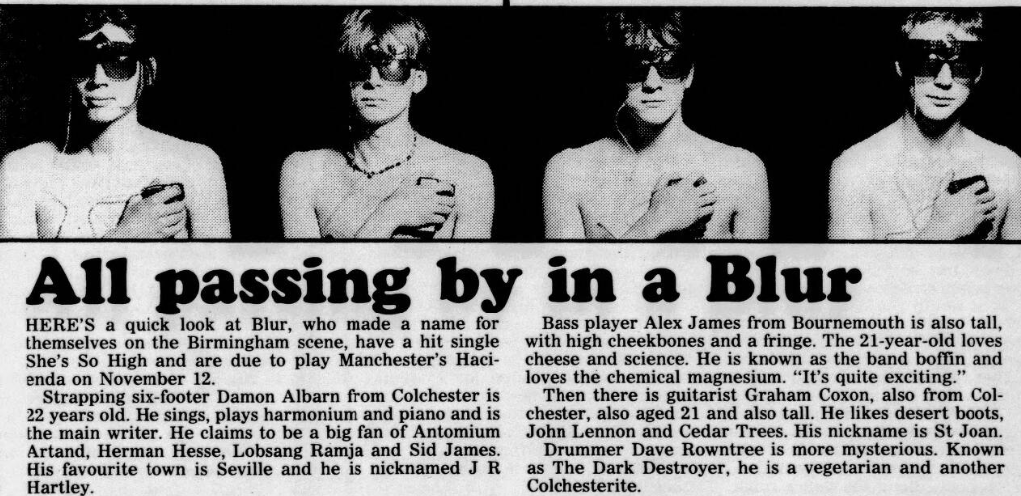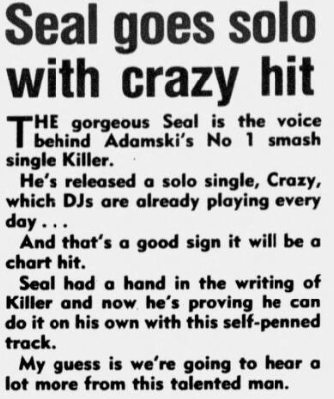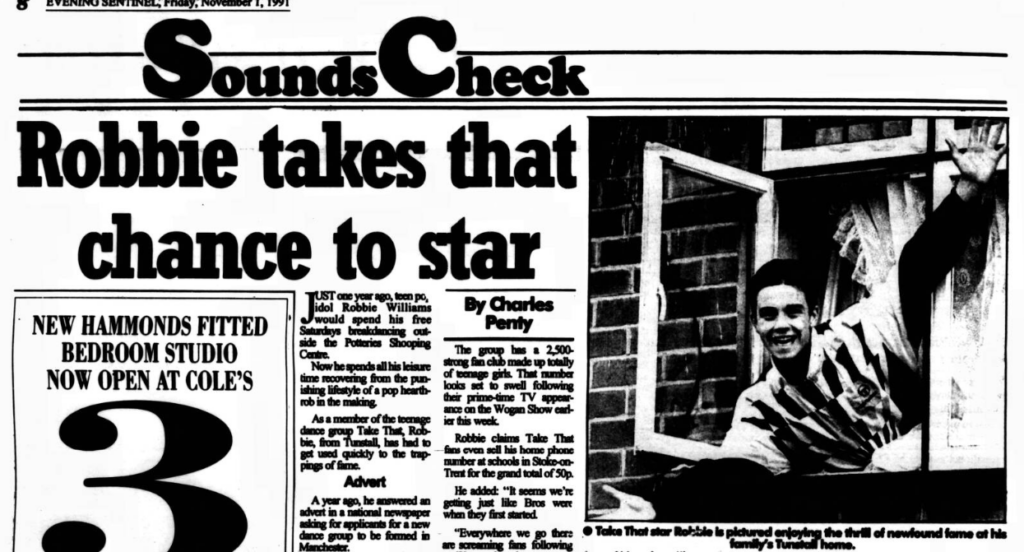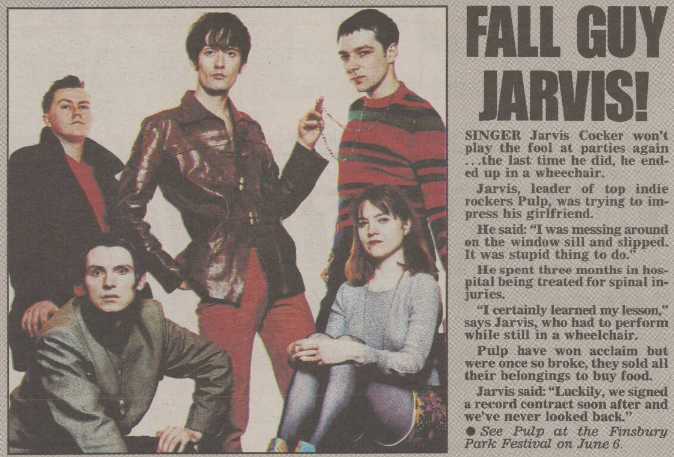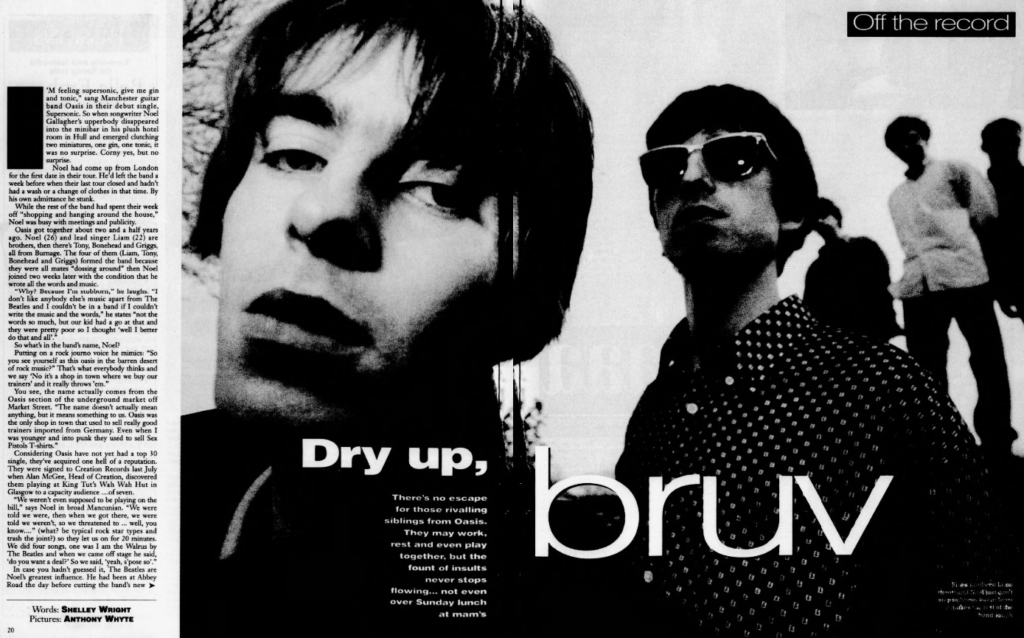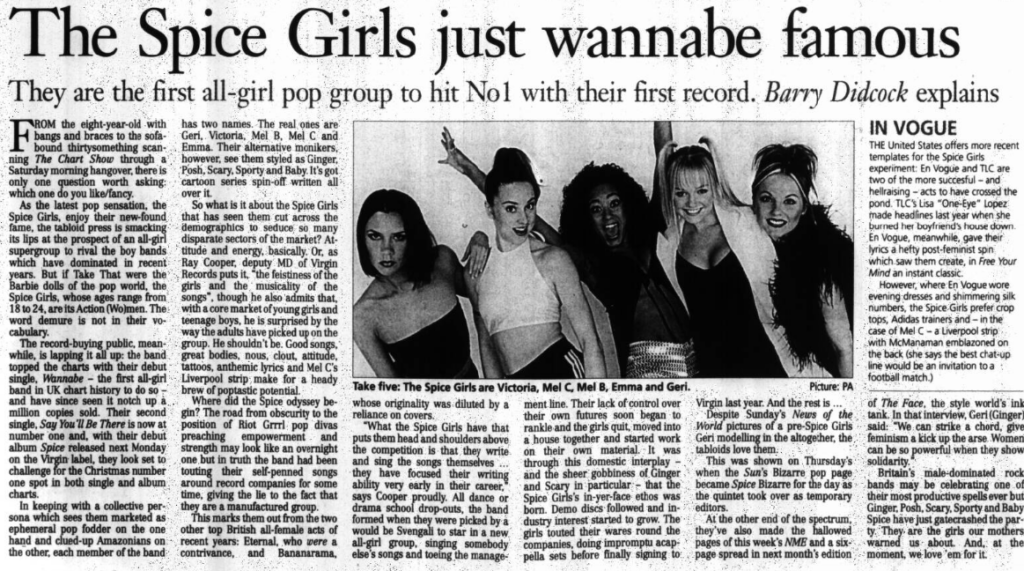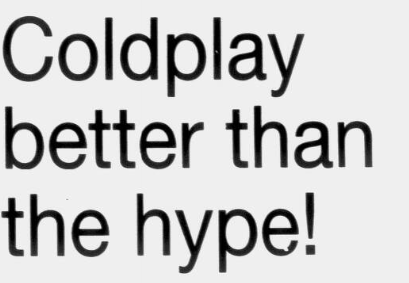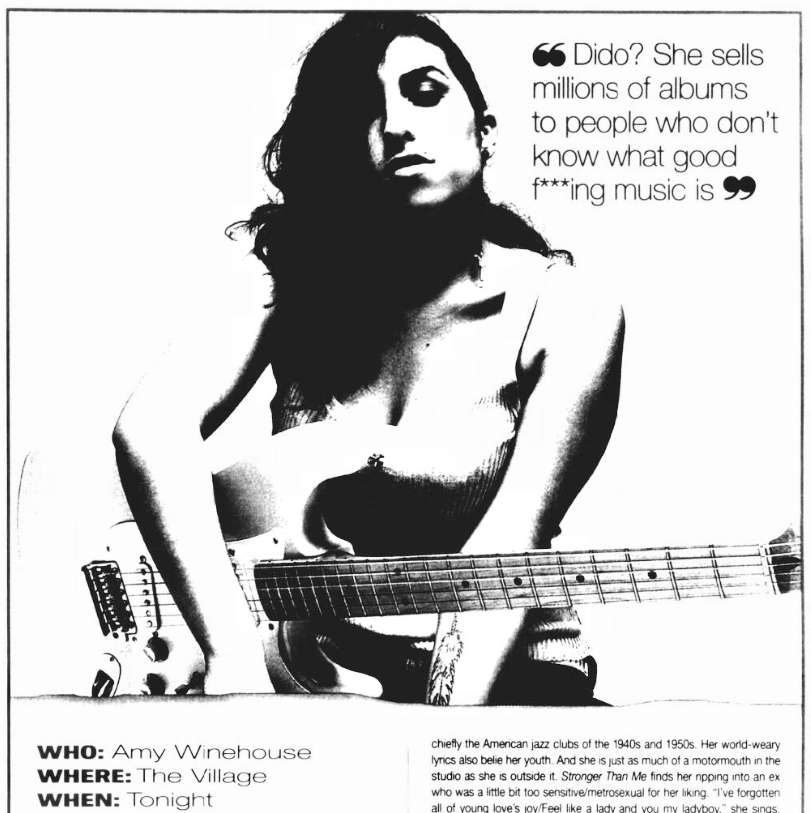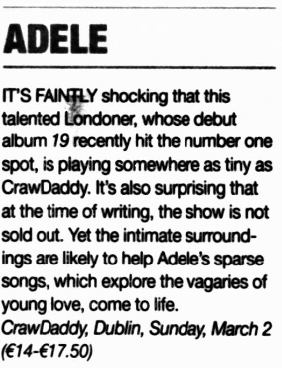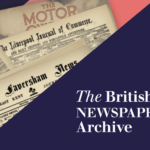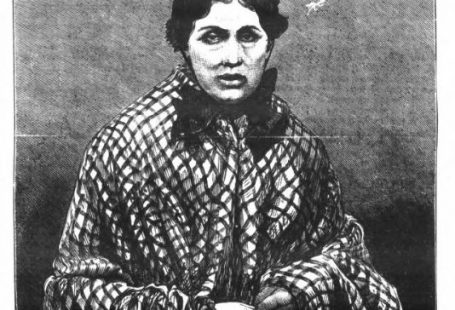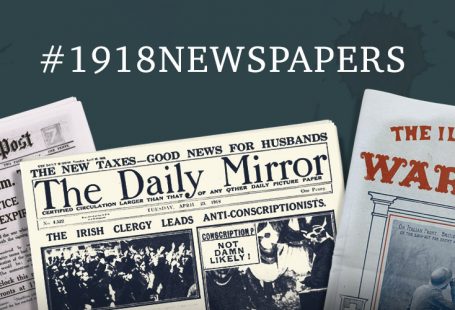From the 1950s onwards the United Kingdom has produced many extraordinary music icons in the arenas of pop, rock and more. The rise of these British music icons, both bands and solo artists, is chronicled throughout our newspaper Archive.
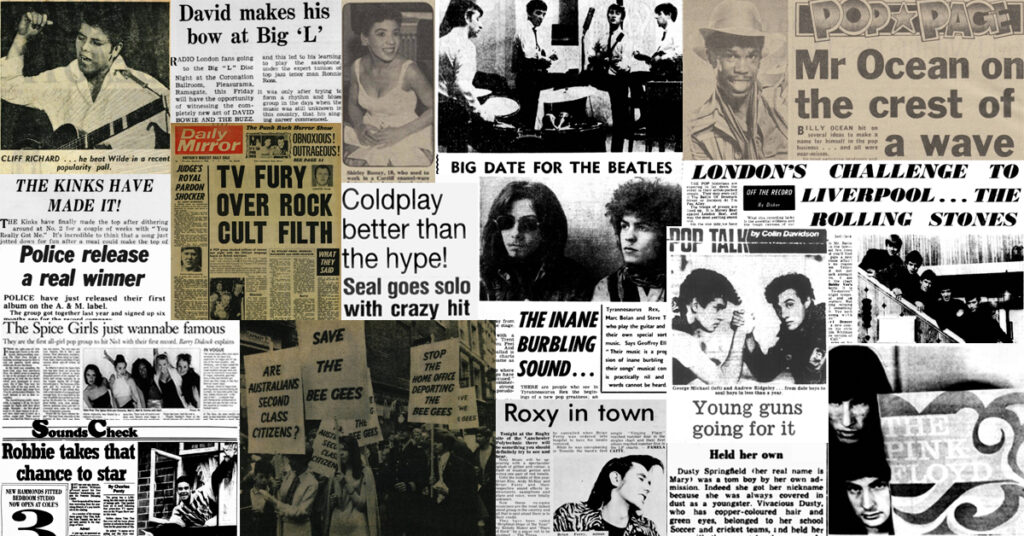
And so, in this special blog, we’ve delved into our Archive to bring you early reviews of Britain’s biggest bestselling music artists. From Shirley Bassey to Duran Duran, from Kate Bush to the Rolling Stones, we’ve picked 42 music icons to highlight, from 1954 all the way through to 2008.
Register now and explore the Archive
1. Shirley Bassey, April 1954 – ‘Outstanding Young Vocalist’
Music icon Dame Shirley Bassey is first mentioned within our newspaper pages as early as 1953, but one of the earliest reviews of her singing talent can be found in the Bognor Regis Observer from April 1954. This piece reviewed the ‘Hot From Harlem’ company who were playing at Portsmouth’s Theatre Royal, with Shirley Bassey among the performers. The Bognor Regis Observer notes how:
Shirley Bassey of ‘Blues’ fame, is the singing star whose voice range and style have made her one of the outstanding young vocalists of the day...
2. Cliff Richard, October 1958 – ‘Most Promising New Singer’
The second of our music icons to get their start in the 1950s is legendary singer Cliff Richard, for whom this review appeared when he was only seventeen. It was not without some controversary, however, as Cliff made the headlines as he replaced nineteen-year-old Marty Wilde as singer on the Oh Boy show. National newspaper the Daily Mirror reported how ‘Cliff was voted the most promising new singer under twenty-one,’ with his rival Marty coming in second.
3. Dusty Springfield, September 1961 – ‘Held Her Own’
Our next music legend is sixties icon Dusty Springfield. We found an early review of her in a September 1961 edition of the Heywood Advertiser, which describes her performance in group ‘The Springfields’ alongside her brothers Tom and Tim. The newspaper labels her as ‘Vivacious Dusty,’ who ‘got her nickname because she was always covered in dust when she was younger.’
4. The Beatles, September 1962 – ‘That Talented Liverpool Group’
It’s fitting that it was Liverpudlian newspaper the Liverpool Echo on 29 September 1962 which captured an important moment in the early career of Britain’s biggest ever selling music act, The Beatles. The Liverpool Echo looked forward to the release of the band’s debut single Love Me Do, which it described as an ‘infectious medium-paced ballad with an exceptionally haunting harmonica accompaniment.’ The reviewer ended his piece by hailing the band’s ‘refreshing do-it-yourself approach,’ whilst wishing ‘these four go-ahead young men the very best of good fortune.’
5. The Rolling Stones, June 1963 – ‘One Exceptionally Eager Quintet’
Hot on the heels of The Beatles were another set of British music icons: The Rolling Stones. Reviewed again by the Liverpool Echo, the band was dubbed as ‘London’s Challenge to Liverpool.’ Disker, whose partiality to homegrown Liverpool talent The Beatles is clear, describes London’s answer to the popular band as ‘one exceptionally eager quintet,’ who are ‘dedicated to Rhythm and Blues.’
6. The Kinks, September 1964 – ‘Finally Made The Top’
Sixties music icons and fellow band The Kinks ‘finally made the top’ spot of the charts with their ever-popular hit You Really Got Me. According to the Kentish Express on 18 September 1964, the band had been ‘dithering around at No. 2’ with the song, which had been ‘jotted down for fun after a meal.’
7. Rod Stewart, December 1964 – ‘Spends £1 A Week On His Hair’
British music icon Rod Stewart hit the headlines during the early days of his career not for his music, but for his hair. Belfast newspaper Ireland’s Saturday Night reported how the ‘nineteen-year-old Blues singer…spends more than £1 a week on the care of his hair.’
8. The Who, December 1965 – ‘Real Crowd-Rousin’ Material’
We’re back to the Liverpool Echo for an early review of one of the most influential rock bands of the twentieth century: The Who. As part of Disker’s ‘Christmas Round-Up,’ the material on the band’s debut album My Generation was dubbed as ‘real crowd-rousin’ material with the accent upon hefty beat, uninhibited vocal yelling and violent guitar work.
9. David Bowie, August 1966 – ‘A Firm Favourite’
British music icon David Bowie is next on our list, with the Kent Messenger & Gravesend Telegraph in August 1966 previewing the performance of ‘the completely new act David Bowie and the Buzz’ at the Big ‘L’ Disc Night at the Coronation Ballroom in Ramsgate. The paper profiles Bowie, and describes how he was already ‘a firm favourite with Radio London’s London fans.’
10. Pink Floyd, January 1967 – ‘Before They Hit The Stratosphere’
We’re back to bands now with pioneering psychedelic rock group Pink Floyd. London paper the Kensington Post profiled the emerging band in January 1967 before ‘they hit the stratosphere,’ noting how the group were ‘one of the most intelligent, exciting and innovatory groups on the scene.’
11. Bee Gees, August 1967 – ‘Placard-Carrying Fans’
British-Australian band the Bee Gees had nearly hit the stratosphere by August 1967, as the Daily Mirror reported how their ‘placard-carrying fans’ marched along Carnaby Street in protest ‘against the Home Office’s refusal to let the group’s two Australian-born musicians stay on in Britain after September 17.’
12. Fleetwood Mac, September 1967 – ‘Gasps of Delight’
British-American music icons Fleetwood Mac began life in London. Richard Williams for the Nottingham Guardian in September 1967 describes the ‘three-minute ovation’ the new band received at the Union Rowing Club, where ‘gasps of delight’ were heard amongst the audience.
13. Status Quo, July 1968 – ‘May Be Hot Number’
We’re back to rock now with an early review of band Status Quo from the Surrey Mirror. The newspaper in July 1968 reported on the band’s new release, Ice In The Sun, which it thought may be a ‘hot number.’
14. Led Zeppelin, December 1968 – ‘A New Group’
Category very much is British rock bands and our next entry is for rock music icons Led Zeppelin, who found their way into Brian Jones’s ‘pop alphabet‘ for the Western Daily Press in December 1968. They were accompanied at the letter ‘L’ by Lulu, who was dubbed to be ‘on top of the world,’ and were introduced as being ‘a new group led by ex-Yardbird Jimmy Page.’
15. Elton John, February 1969 – ‘Hits European Note’
Music icon Elton John hit the pages of his local paper the Harrow Observer in February 1969 not for his own singing, but as the writer of a possible tune for Eurovision. The paper reported how the ’21-year-old professional pop singer’ from Northwood Hills had written I Can’t Go On Living Without You for Lulu to possibly perform at Eurovision, whilst previewing Elton’s debut solo single Lady Samantha.
16. T. Rex, June 1969 – ‘The Inane Burbling Sound’
So far, our emerging music icons have received positive reviews. This is not true of rock band T. Rex. Geoffrey Elliott for the Coventry Evening Telegraph in June 1969 pulled the band’s work apart, writing how ‘their music to me is no more than a progression of inane burblings.’
17. Phil Collins, January 1971 – ‘The New Moody Blues’
We’re into the 1970s now to introduce one of Britain’s best-selling music icons, Phil Collins. Collins, starting out as an actor, got his musical start as the drummer for Genesis, who Daedalus reviewed for the Burton Observer and Chronicle in January 1971. Labelled as proponents of the ‘the new Moody Blues,’ Daedalus described how a ‘delirious crowd wouldn’t let [Genesis] leave the stage’ at a performance at the Hatton Centre.
18. Roxy Music, November 1972 – ‘A Spectacular Splash of Glitter and Colour’
Pioneering a different kind of sound in the early 1970s were Roxy Music, whom the Rugby Advertiser lauded for their ‘spectacular splash of glitter and colour’ and ‘flash of musical genius.’ The Rugby Advertiser was not alone in praising the band: music magazine Melody Maker, according to the same paper, dubbed Roxy Music as the ‘Brightest Hope of the Year.’
19. Queen, November 1973 – ‘Imaginative, Strong, Varied’
The 1970s, like the 1960s, proved to be fertile ground for British music icons, chief amongst whom were the band Queen. David Naylor for the Western Daily Press in November 1973 described how Queen’s music was ‘imaginative, strong, varied and beautifully arranged,’ with ‘moving and exciting lyrics.’ High praise indeed!
20. Billy Ocean, March 1976 – ‘On The Crest Of A Wave’
After a ‘six year wait for success,’ Trinidadian-born British singer Billy Ocean was ‘on the crest of a wave’ by March 1976, according to the Daily Mirror. The national paper describes Ocean’s ‘smash-hit single’ Love Really Hurts Without You, which ‘leapt from nowhere into the No. 12 slot last week and has now climbed to the No. 4 spot.’
21. Sex Pistols, December 1976 – ‘Rock Cult Filth’
Ground-breaking punk rock band the Sex Pistols made the front pages of national newspapers when they burst onto the music scene in the mid-1970s. On 2 December 1976 the Daily Mirror described how the group ‘shocked millions of viewers last night with the filthiest language heard on British television.’
22. The Clash, May 1977 – ‘Destined for Chart Action’
We’re over halfway through our list of early mentions of Britain’s music icons, with the 22nd spot occupied by another punk band, The Clash. The Mid-Ulster Mail in May 1977 reviewed the band’s debut self-titled album, noting how it had ‘that rare attribute in punk offerings, melody,’ and how it appeared ‘destined for chart action.’
23. The Jam, December 1977 – ‘Taking Over’
In December 1977 Stuart Morrison for the Irvine Herald described how a new band was ‘taking over,’ namely The Jam. Hugely influenced by The Who, Morrison detailed how mod icons The Jam had ‘intelligent and well-structured’ songs.
24. Dire Straits, July 1978 – ‘Rare Masterpiece’
Another rock band in Britain’s hall of music icons is Dire Straits, whom the Whitstable Times and Herne Bay Herald in July 1978 tipped for ‘chart-topping success.’ The paper described their self-titled debut album as ‘one of those rare masterpieces amongst first offerings.’
25. Kate Bush, December 1978 – ‘Often Annoying and Sometimes Amusing’
Sadly one of the early reviews received by record-breaking singer Kate Bush was a negative one. A writer for the Southall Gazette notes how they have ‘tried hard to like Kate Bush, but most of her music just irritates’ them. They went on to relate how ‘her often annoying and sometimes amusing vocal contortions do nothing to enhance the lyrics,’ advising her to ‘rid her music of its gimmickry before the fickle public and the even more fickle music business tire of it.’
26. The Police, December 1978 – ‘A Real Winner’
We’re back to rock bands with The Police now. In December 1978 Martin Clark for the Wishaw Press reviewed their debut album, Outlandos d’Amour. Clark described how the band showed ‘good variation throughout the record,’ predicting how ‘if they can keep this standard up they’re on to a winner.’
27. Joy Division, October 1979 – ‘Most Promising New Band’
A short-lived group with a huge impact, the Cheshire Observer lauded Joy Division not only as the ‘most promising new band,’ but as the ‘best group in Manchester.’ The reviewer praised the band for their ‘incessant sense of rhythm,’ comparing lead vocalist Ian Curtis to Jim Morrison ‘at his doomy best.’
28. Iron Maiden, October 1979 – ‘No Relation to Maggie’
We had some difficulty tracing early mentions of our last music icons of the 1970s Iron Maiden, due to the heavy metal’s band name being a common nickname for Margaret Thatcher. Some early coverage of the band’s gig at Ruffles from the Aberdeen Evening Express on 31 October 1979 made a point of highlighting how Iron Maiden had ‘no relation to Maggie.’
29. Duran Duran, March 1981 – ‘Music For People To Dance To’
Beginning our line up of 1980s music icons are pop band Duran Duran. Speaking to the Sandwell Evening Mail in March 1981, the Birmingham band explained how they eschewed labels, singer Simon Le Bon telling the paper how ‘we dismiss all the labels. We just play music for people to dance to. That’s all there really is to it.’
30. Eurythmics, December 1981 – ‘Free To Do Anything’
Annie Lennox had already seen some success in the late 1970s with band the Tourists, but bigger and better things were in store for her and bandmate Dave Stewart when they formed Eurythmics in the early 1980s. Simon Bradshaw profiled the new group in December 1981 for the Coventry Evening Telegraph, Lennox explaining how ‘we’re free to do anything we like. We’d like to create our own style. It’s experimental.’
31. George Michael, October 1983 – ‘By Public Demand’
One of the biggest music icons of the 1980s was George Michael, who got his start with duo Wham!. In October 1983 the Aberdeen Evening Express profiled the duo, whose popularity in the area meant that a ‘single date on their debut tour has been stretched to two nights by public demand.’
32. The Smiths, March 1984 – ‘The Most Important New Band of 1984’
In March 1984 the Daily Mirror profiled new rock band The Smiths, who it describes as being billed as ‘the most important new band of 1984.’ In the piece, lead singer Morrissey’s lyrics are described as giving the band a ‘distinctive edge,’ whilst the man himself is quoted as saying ‘The Smiths are monstrously important – more important than The Police.’
33. Pet Shop Boys, November 1985 – ‘Try Again Boys’
Every now and then we see an early review of our music icons which doesn’t quite get it right (T. Rex, Kate Bush). Britain’s most successful duo in music history, the Pet Shop Boys, suffered a poor review of their hit song West End Girls from the Huddersfield Daily Examiner in November 1985. The reviewer called the track a ‘competent release,’ but couldn’t see the song leading the band to success, urging them instead to ‘try again, boys.’
34. Blur, November 1990 – Making ‘A Name For Themselves’
We now enter another new decade of music icons, the 1990s. And we begin with Britpop group Blur, who the Manchester Evening News in November 1990 describes as having ‘made a name for themselves on the Birmingham scene.’ Blur were set to play at Manchester’s legendary music venue the Hacienda on 12 November 1990.
35. Seal, December 1990 – ‘This Talented Man’
Having already leant his lyrics and vocals to the single Killer for Adamski, Newcastle’s Sunday Sun in December 1990 reported how singer Seal had gone solo. Jane Downing for the paper reports how Seal’s new single Crazy was already being ‘played every day’ by DJs, a ‘good sign it will be a chart hit.’ Downing ended her piece by accurately predicting how ‘we’re going to hear a lot more from this talented man.’
36. Robbie Williams, November 1991 – ‘Pop Heartthrob In The Making’
Having sold more albums than any other British singer, Robbie Williams begun his career in pop band Take That. In November 1991 the Staffordshire Sentinel related how Williams had ‘answered an advert for a new dance group to be formed in Manchester,’ and only a year later, seventeen-year-old Robbie was getting used to the life ‘of a pop heartthrob in the making.’
37. Pulp, May 1992 – ‘Top Indie Rockers’
Our next music icons are the rock band Pulp, who although were formed in 1978, didn’t see success until the early the 1990s. The Daily Mirror in May 1992 describes how the group, now ‘top indie rockers,’ were ‘once so broke, they sold all their belongings to buy food.’
38. Oasis, June 1994 – ‘One Hell of a Reputation’
Arriving on the music scene later than their arch Britpop rivals Blur, Manchester paper the Manchester Evening News profiled the new Mancunian band in June 1994 following the release of their debut single Supersonic. Shelley Wright for the article notes how ‘considering Oasis have not yet had a top 30 single, they’ve acquired one hell of a reputation.’ Wright quotes music executive Alan McGee as calling the band ‘the last great rock and roll story,’ whilst urging readers to ‘watch this space’ regarding Oasis’s future progress.
39. Spice Girls, October 1996 – ‘An All-Girl Supergroup’
We’re in need of a little girl power on this list, and our next music icons spearheaded the 1990s girl power movement. We are, of course, talking about the Spice Girls, who in 1996, as Barry Didcock for The Scotsman reported, were the ‘first all-girl pop group to hit No1 with their first record.’ He observes a tide change in the music industry with the Spice Girls, writing how ‘Britain’s male-dominated rock bands may be celebrating one of their most productive spells ever but Ginger, Posh, Scary, Sporty and Baby Spice have just gatecrashed the party.’
40. Coldplay, July 1999 – ‘Better Than The Hype’
Our last music act of the twentieth century is Coldplay, a band whom Adam Walton writing for the Liverpool Daily Post in July 1999 described to be ‘better than the hype.’ He praises their ‘soaring, joyous comet rock,’ signing off by calling them simply ‘an excellent band.’
41. Amy Winehouse, June 2004 – ‘One of Britain’s Finest Emerging Talents’
The penultimate of our music icons is the late Amy Winehouse. In June 2004 the young singer was profiled by the Irish Independent. In what was a fond piece, the paper described how there was ‘something vaguely thrilling about meeting Amy Winehouse.’ Despite being ‘one of Britain’s finest emerging talents,’ Winehouse is described as not being afraid to speak her mind, her conversation being ‘expletive-laden, frequently hilarious and ultra critical.’
42. Adele, February 2008 – ‘This Talented Londoner’
We’ve come to the end of our list of early reviews of Britain’s music icons. We finish with 21st century songstress and global superstar Adele, who was also profiled by the Irish Independent, this time in February 2008. In a small paragraph, the writer bemoans how ‘its faintly shocking that this talented Londoner, whose debut album 19 recently hit the number one spot, is playing somewhere as tiny as CrawDaddy.’
We hope you’ve enjoyed our selection of early reviews of Britain’s biggest music stars. Find out more about your favourite music artists, or discover more early reviews, as well as much much more, in the pages of our newspaper Archive today.


